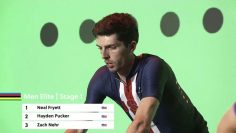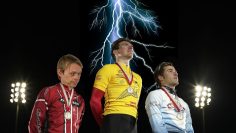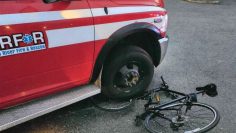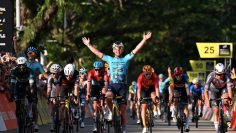“], “filter”: { “nextExceptions”: “img, blockquote, div”, “nextContainsExceptions”: “img, blockquote, a.btn, a.o-button”} }”>
Get a free Giordana cycling jersey when you subscribe to Velo with Outside+! It’s our way of celebrating the 2024 Road World Championships in Zurich. Includes free shipping. Hurry, ends Sept. 29.
>”,”name”:”in-content-cta”,”type”:”link”}}”>Join now.
Chris Froome is considering retirement at the end of next season.
The seven-time Grand Tour champion – who returned to racing from a crash that threatened and then changed the trajectory of his career – says his 19th season, when a long contract with Israel-Premier Tech ends, may be his last as pro racer.
“In a perfect world, I’d love to go back to the Tour, failing that a Grand Tour at least, for one final push on the road,” Froome told Velo and Cyclingnews on the eve of the Singapore Criterium.
“I haven’t definitely decided that it will be my last season next year, but it’s looking more than likely. But to go back to a Grand Tour would be a really special way to finish it off, whether that’s the Tour, Vuelta, or the Giro.
“In my mind, as a younger rider entering the sport, I’d always put getting to the age of 40 and still racing as my goal. That was always, to me, ‘I want to do the best I can do until I’m 40, and that’s my window’.”
Israel-Premier Tech has overlooked Froome for Grand Tour selection the past two seasons, amid distasteful public criticism from team owner Sylvan Adams. The latter has said more than once that the 39-year-old he hired two years after that crash on a recon ride at the 2019 Criterium du Dauphine was not value for money.
However, the four-time yellow jersey winner remains confident he can support younger teammates like Derek Gee or Stephen Williams in three-week races.
“I’m realistic about where I’m at,” says Froome, who hasn’t looked at the course for next year’s Tour.
“I feel I could play a really key role in providing support and mentorship to a lot of the younger guys, especially in terms of anyone who is looking to target riding GC in a Grand Tour. So that would be really cool, to be able to go to a race like the Tour again and mentor a guy like Derek in riding GC.”
The Tour win that got away
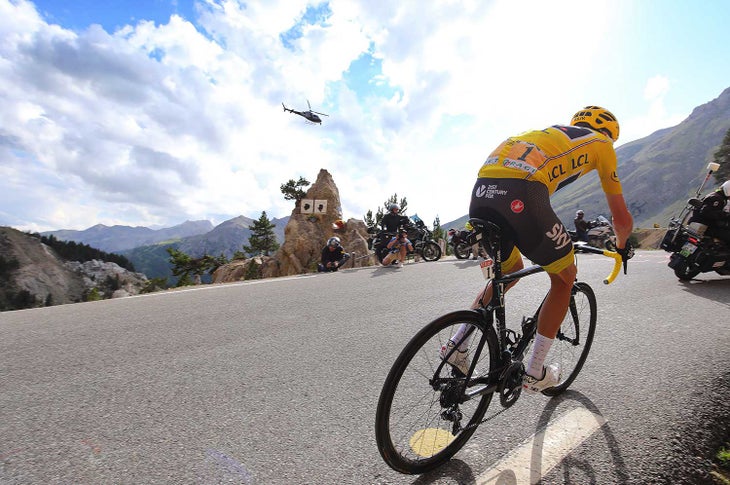
One of Froome’s greatest strengths is his mentality.
It was that that which got him back into the pool months after sustaining multiple fractures in the high-speed crash at the Dauphiné. That came at a time he believed – and still does now – that he was on course for a record-equaling fifth Tour triumph.
“In 2019, when I crashed, I really felt that I was probably more ready for the Tour than I’d been in the years prior to that,” he said.
“I was feeling on a completely different level in 2019, compared to ‘16, ‘17, ’18. So I was so eager to get into that time trial that day at Dauphiné.
“Basically, that, for me, was the day it all started in terms of the Tour, and the Tour build-up, was at that Dauphiné. So there is a part of me that’s like, ‘Argh, it’s frustrating,’ but at the same time I can accept that’s life. Shit happens.”
Plenty of champions before Froome have sworn off racing the day they stop winning. As a winner, riding for someone else can feel more foreign than the daunting prospect of life outside of a sport that has become its own lifestyle.
Sure, there is most likely a financial incentive, but Froome first fell in love with cycling for the freedom it afforded him growing up in Kenya. That hasn’t changed, even if competing is now harder.
“The sport has evolved a lot in the last five years, it’s definitely changing,” he said. “I find racing slightly less enjoyable than previously but part of that is not being able to win any more.
“I mean, of course when you’re winning everything feels great and positive, whereas when you’re on the receiving end of that it’s a lot harder.”
Remaining in a good head space
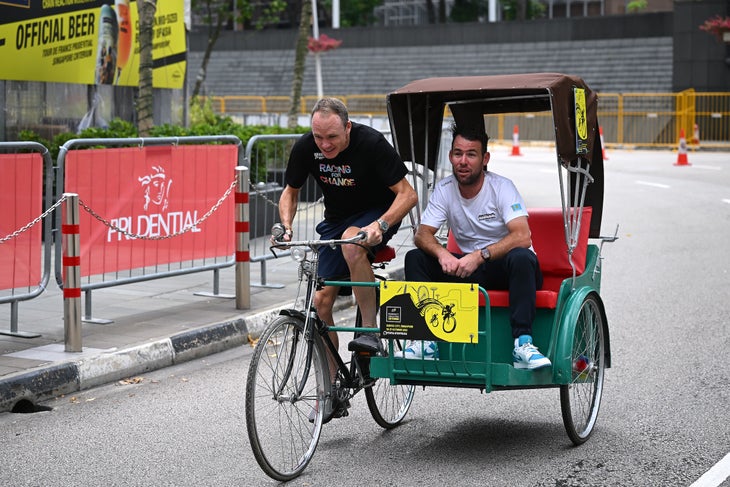
The same mentality that helped make Froome a verified winner has also helped him transition to a new chapter. This sees him racing across Africa, Europe and Asia, his program being a mix of traditional week-long stage and one-day races, plus a healthy serve of so-called new world events this season.
“I don’t harp on what’s happened, good or bad, and that’s something that’s always helped me in my career, especially as a cyclist because there are just countless hurdles and upsets that arise along the way,” he said.
“If you spend too much time really just thinking about everything it can trip you up mentally, whereas I’m always very much focused on what’s coming and what’s in the future. That’s always kept me in a good head space.”
Proof of that is that Froome hasn’t kept tabs on the stable where he made his name, incarnations of Ineos-Grenadiers, which some pundits would argue gained more notoriety from Netflix than results this season.
“I think about the real core team of people who was there when I was there, and those people are not there anymore,” Froome says. “We’re talking about Tim Kerrison, Fran Millar, Dave Brailsford.
“A lot of the riders I was with at the time, all those people have left and are no longer part of the team. So it’s natural to think it’s a completely different team now, which I believe it is.”
Focused forward, Froome, flanked not this year by family but a press officer, isn’t sentimental. He just wants to realize that childhood dream and squeeze every ounce out of his thirties, and the sport that afforded him the opportunity to travel.
“I think it’s the whole ethos of it. It’s the whole lifestyle, it’s sacrifice but to a greater good, which is the team goal and being part of something that’s just bigger than yourself,” he said.
“I especially enjoy that. For me now, that’s definitely more of what I’m getting out of the sport.”




